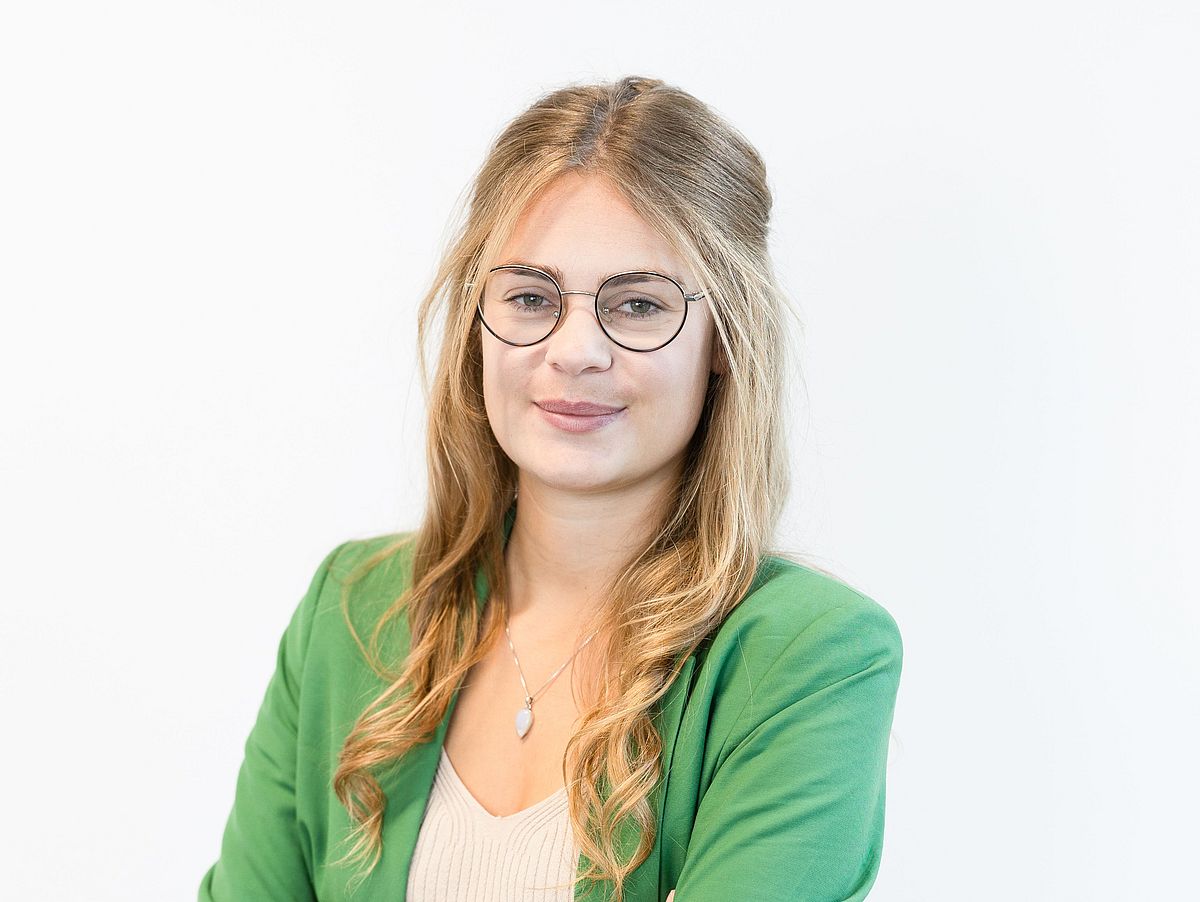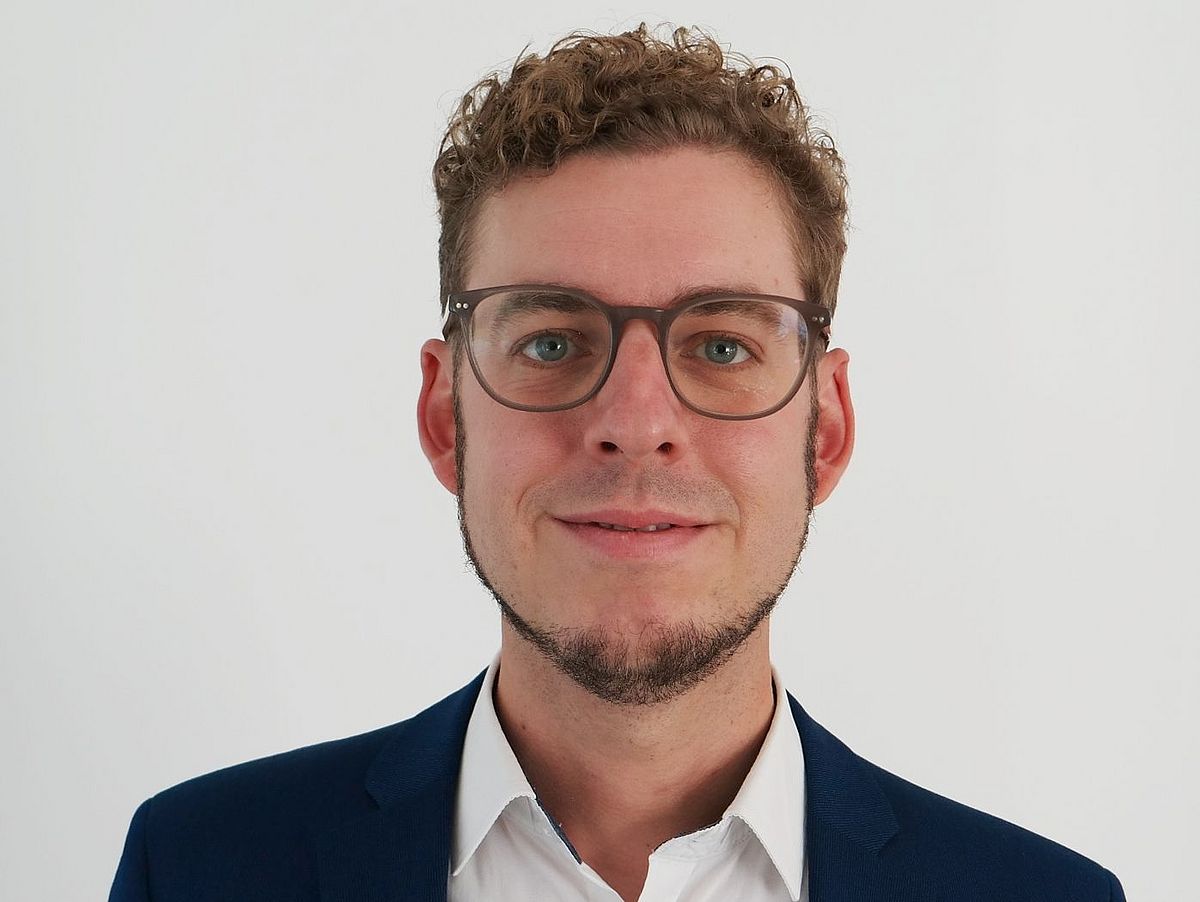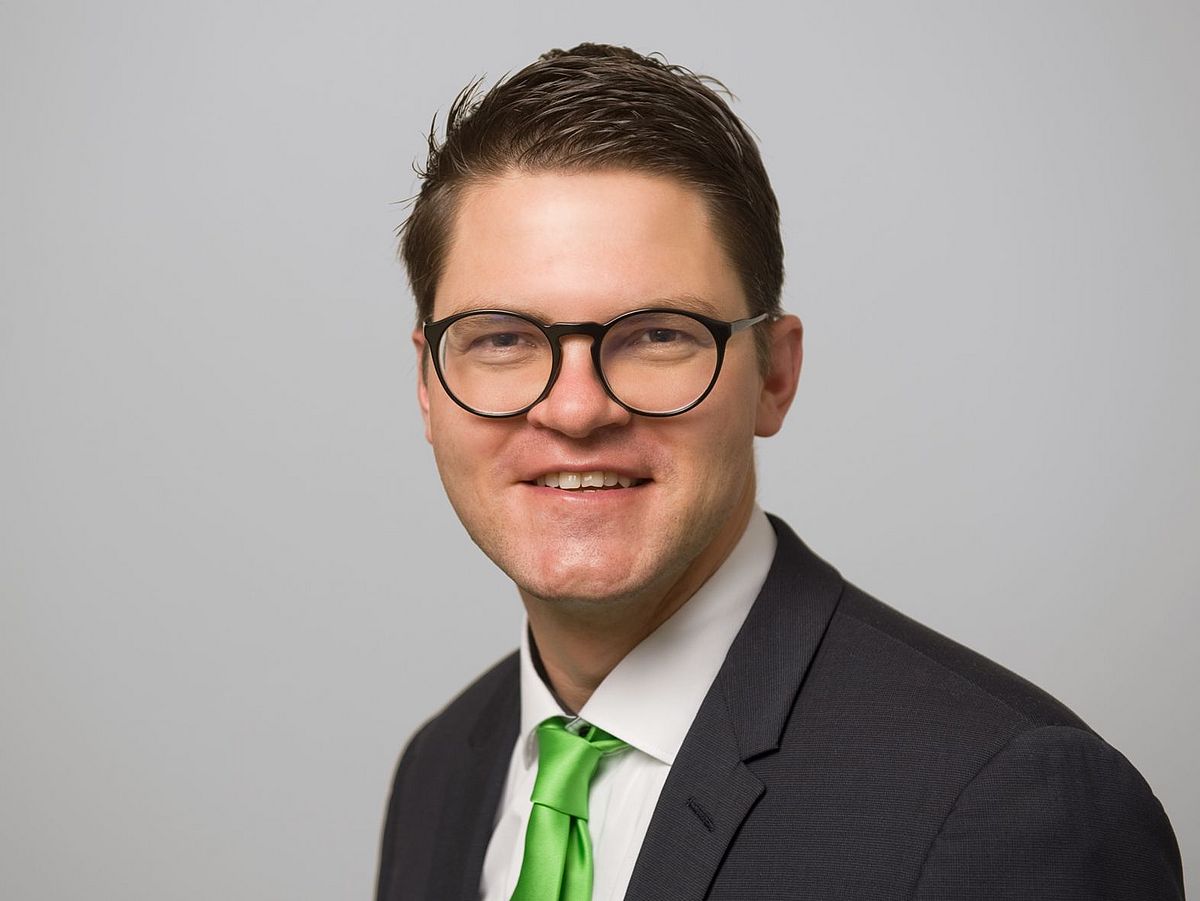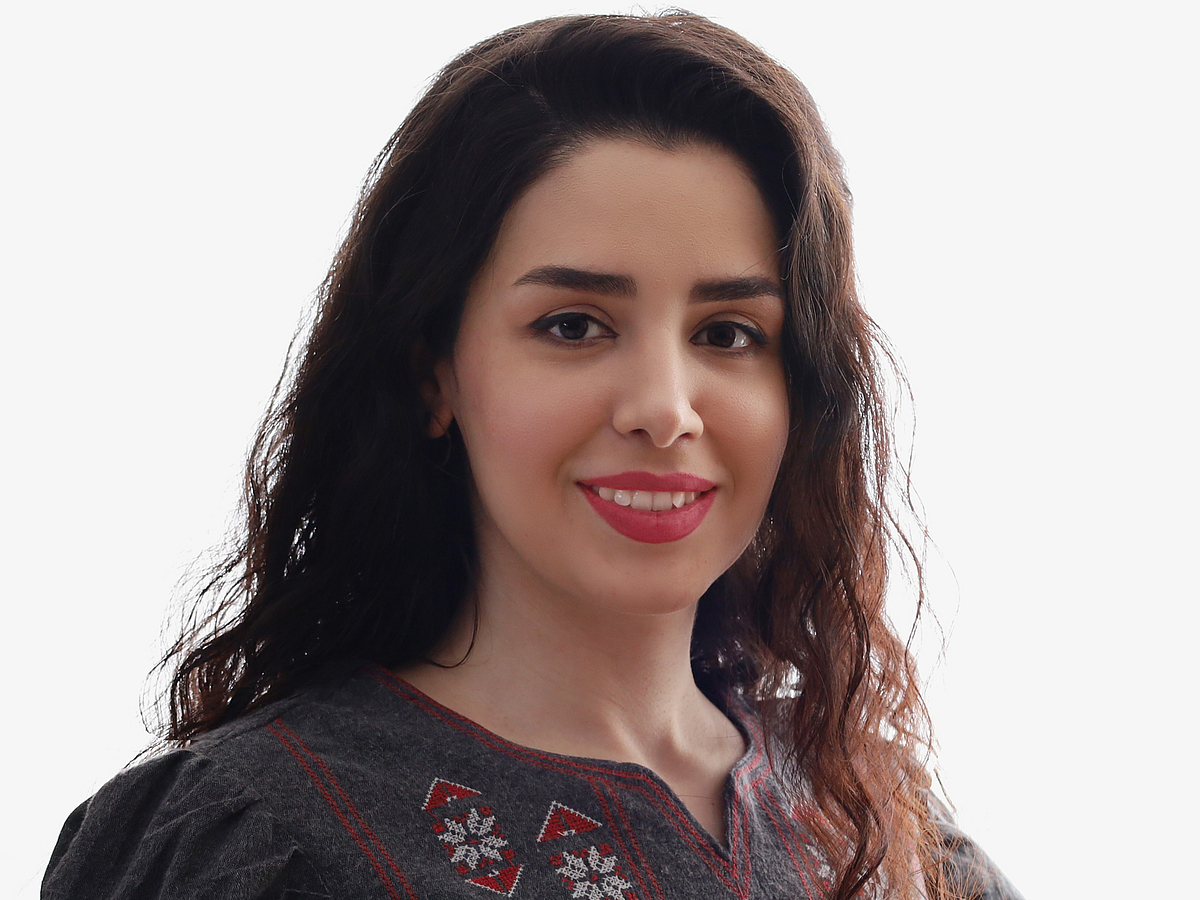3. Cohort


Prof. Dr. Benjamin Müller
1. Supervision
WiWi 2, Room F3030
muellerbprotect me ?!uni-bremenprotect me ?!.de

Prof. Dr. Lara Lobschat
2. Supervision
Maastricht University
l.lobschatprotect me ?!maastrichtuniversityprotect me ?!.nl
Organizations that do not want to be left behind at the market are digitizing. At the same time, organizations are increasingly being held accountable: externalities must be internalized, and social equality must be enabled. Under the concept of "Corporate Digital Responsibility", principles and approaches have already been explored from various disciplines. In the next step, these should be transformed into the practice of corporate governance through sophisticated measures, making their impact tangible.


Prof. Dr. Benjamin Müller
1. Supervision
WiWi 2, Room F3030
muellerbprotect me ?!uni-bremenprotect me ?!.de

Prof. Dr. Lara Lobschat
2. Supervision
Maastricht University
l.lobschatprotect me ?!maastrichtuniversityprotect me ?!.nl

Tim-Christoph Engelhardt
Doctoral Student
WiWi 2, Room F2340
tcengelhardtprotect me ?!uni-bremenprotect me ?!.de

Prof. Dr. Julia Kensbock
1. Supervision
WiWi 2, Room F2430
kensbockprotect me ?!uni-bremenprotect me ?!.de

Prof. Dr. Benjamin Müller
2. Supervision
WiWi 2, Room F3030
Artificial intelligence (AI) has long been a part of the workplace. Current developments in AI are increasingly enabling interactions between humans and AI at work. In the process, the relationship between humans and AI is also changing to the effect that AI no longer acts only as a tool, but also as a social actor, e.g. as a member of a team. The impact on individuals and teams in the work context implied by the different roles of AI is the focus of this project.

Tim-Christoph Engelhardt
Doctoral Student
WiWi 2, Room F2340
tcengelhardtprotect me ?!uni-bremenprotect me ?!.de

Prof. Dr. Julia Kensbock
1. Supervision
WiWi 2, Room F2430
kensbockprotect me ?!uni-bremenprotect me ?!.de

Prof. Dr. Benjamin Müller
2. Supervision
WiWi 2, Room F3030


Professor Dr. Dr. hc. André W. Heinemann
1. Supervision
WiWi2, Room F2320
andre.heinemannprotect me ?!uni-bremenprotect me ?!.de
The introduction of digital forms of public monies is being anticipated for all of the world's major currency regions. This transformation is beginning to take shape in Europe through the development of the "Digital Euro". The European Commission's proposal for the adoption of this central bank digital currency (CBDC) is currently under discussion as part of the EU’s legislative process. Though a multitude of diverse approaches can be considered viable, each holding the potential for profound implications. Depending on the conceptual path chosen by European authorities, these endeavors may stimulate new dynamics within financial markets and foster innovation in monetary instruments, extending beyond serving as a digital counterpart to existing forms of cash. The research at hand is dedicated to a comprehensive analysis of the economic and econopolitical consequences that the implementation of the "Digital Euro" would entail.


Professor Dr. Dr. hc. André W. Heinemann
1. Supervision
WiWi2, Room F2320
andre.heinemannprotect me ?!uni-bremenprotect me ?!.de


Prof. Dr. Rolf Drechsler
1. Supervision
MHZ, Room 4330

Prof. Dr. Thorsten Poddig
2. Supervision
WiWi 2, Room F4050
poddigprotect me ?!uni-bremenprotect me ?!.de
Her research includes data mining, data management, and data processing for crowdsourcing platforms by applying machine learning techniques in conjunction with natural language processing techniques. The goal is to determine the user engagement and its effects on the crowdsourcing platform by predicting the most advantageous parameters.


Prof. Dr. Rolf Drechsler
1. Supervision
MHZ, Room 4330

Prof. Dr. Thorsten Poddig
2. Supervision
WiWi 2, Room F4050
poddigprotect me ?!uni-bremenprotect me ?!.de

Christopher Johnson
Doctoral Student
WiWi 2, Room F2370
cjohnsonprotect me ?!uni-bremenprotect me ?!.de

Prof. Dr. Benjamin Müller
1. Supervision
WiWi 2, Room F3030

Prof. Dr. Julia Kensbock
2. Supervision
WiWi 2, Room F2430
kensbockprotect me ?!uni-bremenprotect me ?!.de
Christopher Johnson is a research assistant and doctoral candidate within the Faculty of Business and Economics and member of the “Diginomics” graduate group at the University of Bremen. His research focuses on (corporate) responsibility and ethics in a digital society under the supervision of Prof. Dr. Benjamin Mueller (Professor for Digital Business, esp. Management of Digital Transformations) and Prof. Dr. Julia Kensbock (Professor for Management and Organiazation in the digital society).

Christopher Johnson
Doctoral Student
WiWi 2, Room F2370
cjohnsonprotect me ?!uni-bremenprotect me ?!.de

Prof. Dr. Benjamin Müller
1. Supervision
WiWi 2, Room F3030

Prof. Dr. Julia Kensbock
2. Supervision
WiWi 2, Room F2430
kensbockprotect me ?!uni-bremenprotect me ?!.de


Prof. Dr. Thorsten Poddig
1. Supervision
WiWi 2, Room F4050
poddigprotect me ?!uni-bremenprotect me ?!.de

Multi Agent Systems (MAS), a part of Distributed Artificial Intelligence (DAI) and a subfield of Artificial Intelligence (AI), provides an avenue to develop and analyze models and theories of interactivity in human societies. Whereas traditional AI concentrates on agents as “intelligent stand-alone systems”, DAI concentrates on agents as “intelligent connected systems” and on intelligence as a property of systems that interact. This interaction between intelligent agents helps to provide succinct description and understanding about the collective behavior of intelligent agents in a social system. This opens the possibility to apply multi agent analysis to complex social systems; such as financial markets. As MAS begins to gain practical use in finance, its application can help to provide deep insights into the underlying phenomenon of the cross-section of asset returns. This project from a finance perspective provides a value addition as there are only few applications of agent-based models in finance.


Prof. Dr. Thorsten Poddig
1. Supervision
WiWi 2, Room F4050
poddigprotect me ?!uni-bremenprotect me ?!.de



Prof. Dr. Maik Eisenbeiß
1. Supervision
WiWi 2, Room F3380
eisenbeissprotect me ?!uni-bremenprotect me ?!.de

Prof. Dr. Kristina Klein
2. Supervision
WiWi 2, Room F3210
Artificial Intelligence (AI) is becoming increasingly important in the field of marketing, offering new avenues for innovation and efficiency. The project aims to explore how AI has been utilized in marketing so far and envision its future roles. By examining various sectors, it seeks to understand the transformative impact of AI on marketing strategies and business practices. This research will employ state-of-the-art AI algorithms and tools, contributing valuable insights into effective AI integration in diverse marketing contexts.


Prof. Dr. Maik Eisenbeiß
1. Supervision
WiWi 2, Room F3380
eisenbeissprotect me ?!uni-bremenprotect me ?!.de

Prof. Dr. Kristina Klein
2. Supervision
WiWi 2, Room F3210

Fateme Rezaei Badafshani
Doctoral Student
WiWi 2, Room F2340
rezaeibaprotect me ?!uni-bremenprotect me ?!.de

Prof. Dr. Julia Kensbock
1. Supervision
WiWi 2, Room F2430
kensbockprotect me ?!uni-bremenprotect me ?!.de

Fateme Rezaei Badafshani has been a research assistant and doctoral candidate in the Diginomics Research Group and in the team of Prof. Dr. Julia Kensbock (Professorship for Management and Organization in a Digitalized Society) and Dr. Katharina Klug at the University of Bremen since May 2023. She is working on the quality of interaction and required psychological skills in the virtual workplace.

Fateme Rezaei Badafshani
Doctoral Student
WiWi 2, Room F2340
rezaeibaprotect me ?!uni-bremenprotect me ?!.de

Prof. Dr. Julia Kensbock
1. Supervision
WiWi 2, Room F2430
kensbockprotect me ?!uni-bremenprotect me ?!.de


